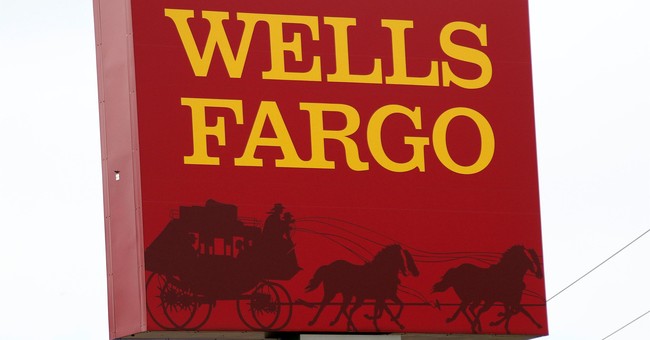
OPINION
Venerable bank Wells Fargo may be about to turn its back on the industry that protected its beginning. The operating committee of the bank is scheduled to meet on July 30, 2020. Among the agenda items that may be considered is one to reverse the bank’s stated policy of providing fair and equal access to banking services to the firearms industry.
Well Fargo may instead adopt a business position aligning itself with the Environmental and Social Responsibility Group (ESRG) policies, the business reporting term for “political correctness”, of other large banks such as Bank of America and Citigroup that would refuse to do business with companies that manufacture or sell semi-automatic modern sporting rifle, also known by their media narrative name, semi-automatic assault weapon. JP Morgan Chase, the biggest domestic US bank, does not say it has such a policy but there have been instances where credit card processing services operated by JPM have been denied to gun dealers by third party vendors in the past.
Unconfirmed rumblings are that pre-meeting calls may have already been placed with the CFO’s of companies informing them that Well Fargo may begin withdrawing financial services shortly after the meeting. It is not clear if such a change in policy will affect commercial lending and business services just for domestic civilian goods; or if the policy will be a blanket abandonment of manufacturers including those making military, law enforcement, or export market firearms.
Previously, Wells Fargo stood alone among the big banks as a voice of reason in the aftermath of the failure of an anti-gun policy known as “Operation Chokepoint” that was declared defunct by US bank regulators in 2015. Related to other failed policies such as the government organized gun running to Mexico operation “Fast and Furious”, Chokepoint was an attempt to weaponize the banking system against illicit activities in America’s War on Drugs.
Operation Chokepoint failed miserably after causing ravaging damage to the legitimate firearms industry. Bank regulators issued strong guidance to all banks to cease and desist from discriminatory practices and to return to an emphasis of fair and equal access to financial services for all legitimate businesses.
But beginning in 2016, with the election of US President Donald J Trump, gun control advocates began a campaign in defiance of government regulatory guidance to create a “Private Chokepoint” program, using ESRG departments as operatives under the guise of reputational risk management, to enact management policies carrying on the business discrimination practices of the discredited government program. It was clearly an attempt by activists to “resist” official regulatory guidance.
The problem rose to the forefront anew during the implementation of the 2020 CARES Act’s Payroll Protection Program (PPP) because in order to obtain a PPP loan through a bank, a company almost always had to have a commercial banking relationship with the bank; something that would be impossible for firearms manufacturers under “Private Chokepoint” corporate policies.
The policy is a form of business discrimination no different from refusing to bake a cake or make a cup of coffee. The problem though is that banks have a fiduciary responsibility to provide fair access to services to the entire economy in exchange for benefitting from tangible government benefits such as access to the Fed Fund discount money window, FDIC insurance protection, and the Automated Clearing House (ACH) infrastructure; not to mention that all these banks received blood transfusion bail outs to keep them alive in the aftermath of the 2008 financial crisis.
This discrimination has not gone unnoticed in official circles.
As noted in my article, “Records Show CARES Act Aid to Firearms Manufacturers and Outdoor Industry Was Miniscule”, on April 28, 2020, the Members of Senate led by Senator Kevin Cramer (R-SD) issued a letter questioning whether or not regulatory agencies had proper control over the financial institutions suspected of continuing to practice “Chokepoint” policies.
On May 26, 2020, U.S. Rep. Richard Hudson (R-NC), issued an inquiry letter to the U.S. Treasury Department, Federal Reserve and Small Business Administration worrying that some banks could weaponize market dominance to discriminate against firearm and ammunition businesses, as well as other politically disfavored industries.
The pair, and their Senate and House cohorts, recently signed a joint letter to these same agencies noting they have received no response and that they are aware of potential violations by banks they wish to discuss.
Compliance risk to the banking industry because of social responsibility discrimination practices. It is a danger to the banks because the discrimination is not just isolated to the firearms industry. Discriminating against other disfavored industry sectors including oil exploration, mining, private prisons, cannabis, and payday/micro lending, the so-called “sin-dustries”, also meets with objections from the operatives in the banks. ESRG departments are suffering from mission creep, becoming weaponized business practice vectors.
On July 21, 2020, Congressman Roger Williams (R-TX) along with 56 other colleagues wrote a letter of complaint to House Minority Leader Kevin McCarthy accusing Democrats of engaging in political tampering with the US financial services system by encouraging practices that hinder the ability of the country to recover from the economic slowdown of COVID-19. The course of these inquiries goes very predictably.
The economic loss from restraint of trade is real and creates tangible damages. The clamor to investigate and eventually punish those that practiced business discrimination will grow. Eventually the music will stop, cease and desist orders will be issued, and persons, big and small, will be expelled from participating in banking and financial services for the remainders of their lifetimes. It’s happened time and time again. The damage records including the cease and desist orders, fines and individual’s names are all public record.
Regulators are also aware and asking questions. On July 24, 2020, Acting Comptroller of the Currency Brian P. Brooks responded to a letter of inquiry by Senator Dan Sullivan (R-AK) addressing the question of business discrimination by banks against the oil and gas exploration industry. In the letter, Brooks was candid about his reservations that the ESRG risk management argument had merit.
“I share your concerns regarding these decisions. The oil and gas sector is critically important to our national economy. It supports 10.3 million jobs in the United States, constitutes nearly 8 percent of our GDP,1 and many communities depend on it, such as the Alaska Native communities whom you highlight. Oil is the most actively traded commodity in the world.2 Given the industry’s importance and ubiquity in our daily lives, I am skeptical of claims that the sector poses a “reputational risk” to the banks that serve it.
As requested, the OCC will take a serious look at these banks’ actions. The OCC intends to seek additional information from the banks involved to understand the rationale for these decisions as well as their effect on our national economy and local communities. This will, in turn, help us analyze whether these actions violate any duty or obligation under federal laws. For example, 12 U.S.C. § 1(a) requires the OCC to ensure that banks provide “fair access” to financial services.”
Brook’s letter goes further into the dim view of the OCC about the reputational risk ploy with specific mention of the government’s experience with “Operation Chokepoint”.
“I had hoped that the banking industry’s experience with, and the eventual discrediting of, Operation Chokepoint would be a sufficient object lesson about the perils of discriminating against businesses that, while unpopular to some, are nevertheless legal for all and demanded by many in our market economy. Unfortunately, your letter suggests that that may not have been the case.”
I don’t know about how you want to interpret that quote; but it sounds like a carefully calculated blast from a shotgun wielded by the sheriff of the banks, the Office of the Comptroller of the Currency. Brooks even took the time to say exactly what part of the United States Code is being violated.
My shotgun metaphor was chosen deliberately. That was an iconic symbol of America’s Wild West resilience represented by Wells Fargo; a stagecoach protected by a guard riding shotgun. A Wells Fargo stagecoach still proudly graces the bank’s main office in San Francisco, California. Wells Fargo management may want to ponder things a little before testing the OCC again. They lost that last one about the unauthorized opening of accounts. One CEO driven from the industry in disgrace and three replacements later, does current CEO Charles Scharf really want to play chicken with one of the smartest and most focused bank regulators to ever head the OCC?
There is a house of cards of component risks building that will at some point result in a systemic cascading failure. What analysts call a beta risk event. It is the exact thing that sustainability departments are supposed to steer their executive committees and boards of director well clear of. If they are not, why are they taking up oxygen in the building?
The curious “adequacy of internal controls question” here is why have the ESRG departments within these banks not been called on the carpet for potentially exposing the institutions to another round of punitive rulings? And for practices running afoul of regulatory guidance that has been in place since 2015? Which Executive Vice Presidents and their staffs are advising their Operating Committees and Boards of Directors that they are better protected from market reputation risk by gambling regulatory compliance risk? Who is doing that math and why aren’t the executives asking them to prove that the Senators, Members of Congress, and the heads of regulatory agencies can be dismissed in such cavalier fashion?
And then there’s the business acumen question. The firearms industry has prospered during COVID-19 making it one of the best counterparties to be doing business with in terms of capital loans, leases and merchant processing services. It’s much less risky than the prospects hovering over other portions of the bank asset portfolio like commercial real estate or even 1-4 mortgages in the near an mid-term. That makes abandoning these businesses in the face of the number particularly discriminatory practice. Again, one would think that such a consideration would be a paramount bit of reasoning one would expect an ESRG department to factor into its plans and recommendations. Virtue signaling won’t impress the regulators when Tier 1 Capital or Net Interest Margin start squeeze and affect the financial sustainability of the institution. Systemic risk management only cares about math and compliance.
It’s not really about whether or not there’s risk in the world. It’s a matter of deciding which risk one chooses to take on. Me? I don’t bet against regulators. Under the U.S. Banking Act, their decisions carry the weight of law immediately upon issuing a decision.
Both barrels.
Note: I realize I’m an new author and people are still getting to know me on Red State. There was a question from a commenter about how much experience I’ve had with the banking industry. For your consideration, here is a public record sample of a somewhat more ministerial contribution. https://www.fdic.gov/regulations/laws/federal/2019/2019-aplication-of-the-uniform-financial-institutions-rating-system-3064-za08-c-008.pdf
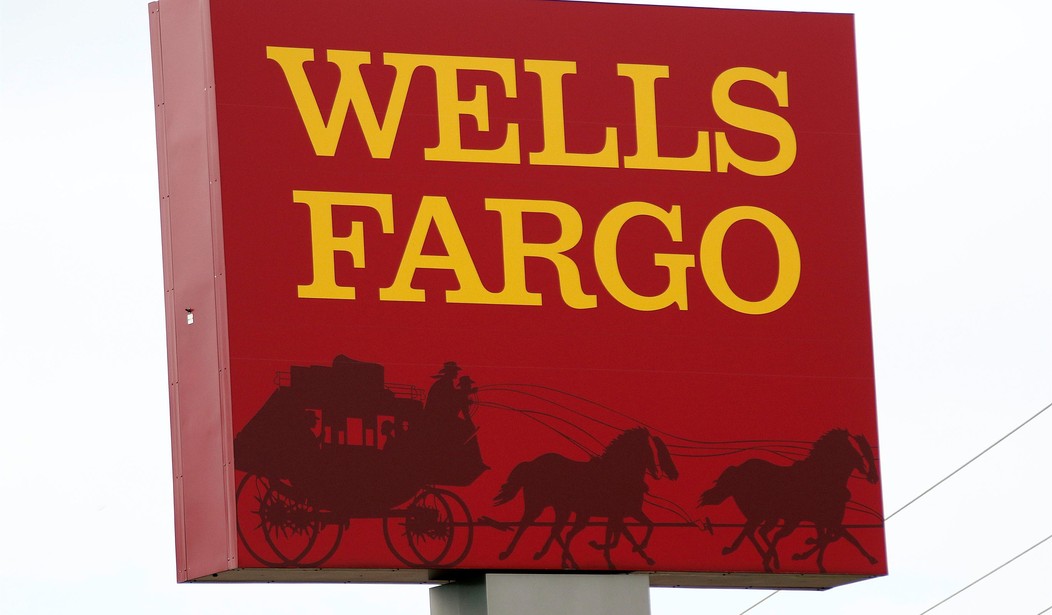
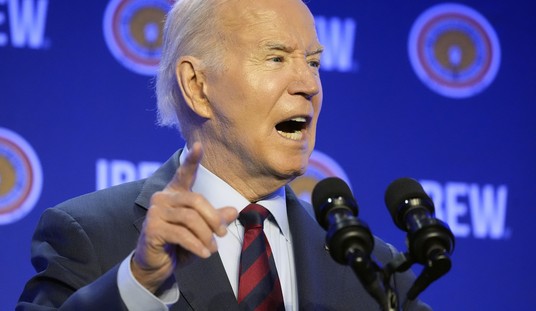
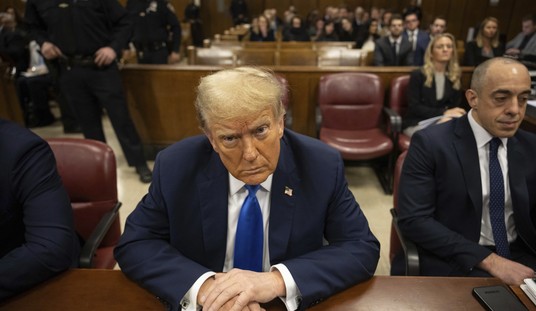



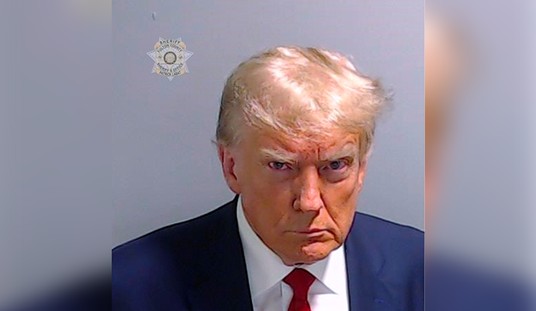
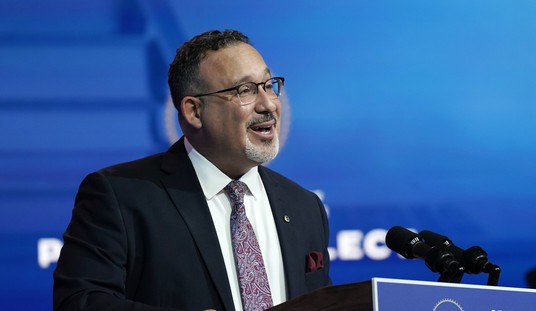



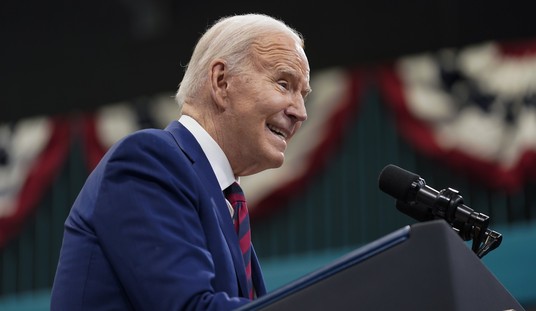
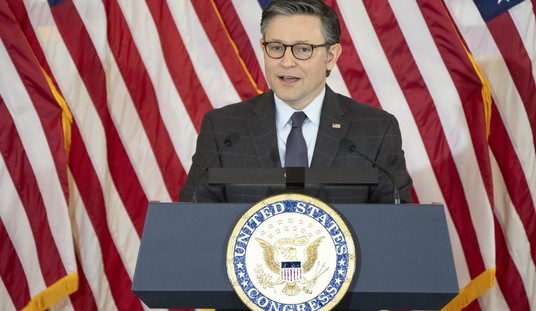
Join the conversation as a VIP Member